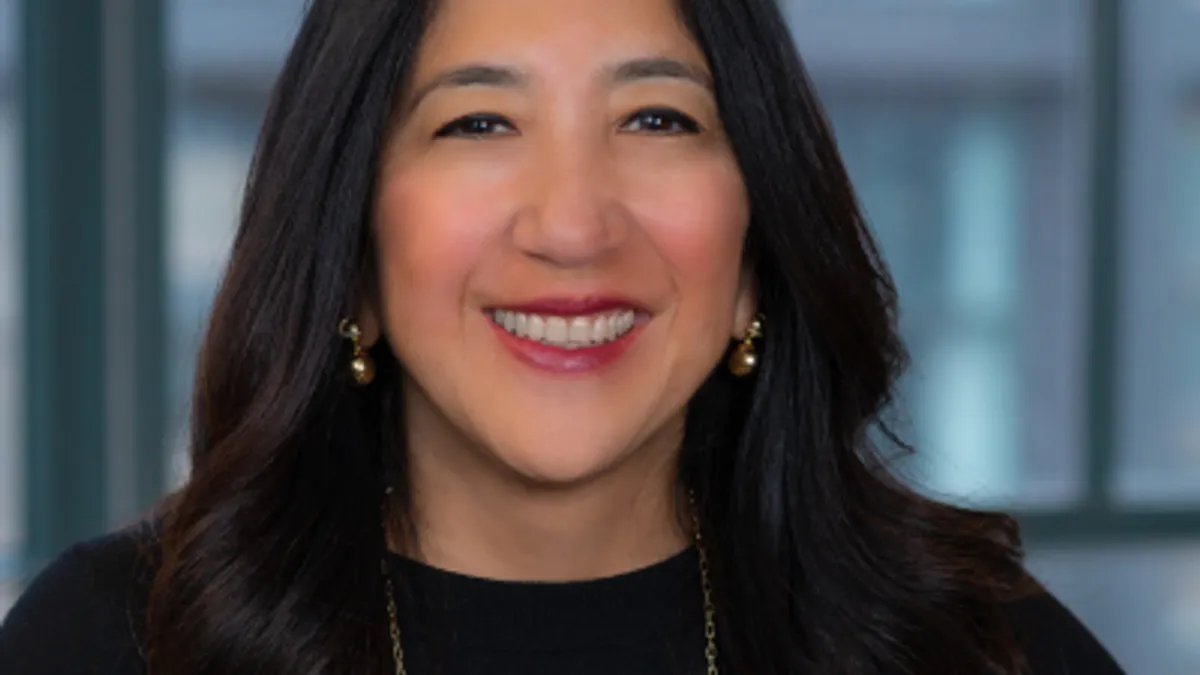For many CFOs, a tense macroeconomic environment and the push to innovate with new digital technologies has put a premium on profitability — but that doesn’t mean sacrificing the potential for growth.
Achieving that hard-to-reach balance “always starts with having a very clear, capital efficient framework that you articulate to your peers,” said Elena Gomez, CFO of Toast, speaking Wednesday at the CFO Leadership Conference in Boston, Massachusetts held by The CFO Leadership Council. “So if you don't do that, then it's almost like you're trying to push for something, but it's unclear what the end goal is.”
While Toast, a provider of restaurant payments technology, is not yet profitable, its focus is on building an enduring company — and if that’s the focus, “there’s no question you’re going to want to build a financially-disciplined company, even if that’s hard,” Gomez said.
A veteran of Salesforce, Visa and Charles Schwab, Gomez moved to Boston-based Toast after serving as CFO for Zendesk. She took Toast’s top financial seat in May 2021 — about five months before the restaurant payments technology provider went public that year. The company’s IPO valued Toast at about $20 billion, according to a CNBC report at the time.
Even as the company prepared to go public, prepping for the long-term future of the company was top-of-mind for Gomez, she said. One of her first priorities as incoming finance chief was thinking strategically about “building a team for the future, and not just a team that’s going to take the company public in, you know, three months,” she said.
“Probably the most important thing I did is really figure out what talent I had, and what talent we needed for the next…three to five years,” Gomez said. In making the move to go public, Gomez also had to set the company’s strategy and narrative, working with Toast’s board and investors as a new CFO to put the company on the right track both in the short-and long terms.
One key area finance leaders shouldn’t overlook when it comes to going public is SOX compliance, Gomez said. If she could go back in time, “I would have probably said, ‘okay, I need my head of internal audit immediately,” Gomez said of approaching SOX compliance before the company’s IPO.
In hindsight, “I don’t think I appreciated where we were in that moment, because I was so focused on the narrative and the strategy” and raising the money the company needed for its IPO, she said.
Toast has remained in the headlines since its high-profile IPO, with the company growing rapidly — reaching 112,000 locations in the U.S. in the first quarter of 2024 ended March 31, according to its most recent earnings results. That represents a 32% increase in locations year-over-year, with the company also reporting a 43% jump in gross profit to $249 million for the period.
The company continues to face growing pains, however. Last year, its stock took a tumble after it pulled back on a controversial $0.99 fee on digital orders, which prompted resistance from its customer base of smaller restaurants.
Furthermore, while the company has exhibited strong growth, it has yet to hit profitability. Toast reported a net loss of $83 million for its most recent quarter end March 31 — a figure slightly above the $81 million net loss it reported for the prior year period. The company is narrowing its cash burn, however, reporting cash flow of negative $33 million for Q1 2024, compared to negative free cash flow of $65 million for Q1 2023.
Much of the negative cash flow was due to severance costs, Gomez said during the earnings call. In February, Toast cut 550 employees or 10% of its headcount. Toast CEO Aman Narang admitted during an analyst call that month that Toast “grew our team too quickly in some areas” and needed to restructure to better align the organization, according to a report by Industry Dive sister publication Payments Dive.
As a CFO, Gomez has always wanted to be “front and center” during tough decisions such as layoffs, “because I'm a part of that decision, typically,” she said Wednesday. “And if you show the proper empathy in that moment, people...might remember, ‘you know what, the company handled it so elegantly, they showed up and explained what happened.’”












